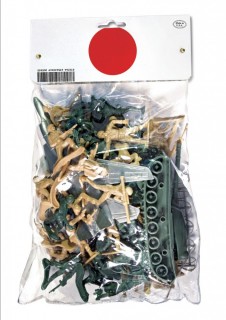Loading
Search
▼ Japan Gets Ready to Fight
- Category:Other

BLOOMBERG
Japan’s shock, grief, and anger over the recent beheadings of two of its citizens by Islamic State has drawn into sharp focus the country’s ambivalence about the use of its military to protect its citizens and its interests. For decades, Japan was bound by its 1947 constitution to mobilize troops solely for self-defense. The country didn’t have the legal right to send armed troops abroad to protect its own people or back up allies who come under attack.
Prime Minister Shinzo Abe is determined to change this Cold War arrangement, which was imposed by the U.S. during its postwar occupation of Japan. Today the country faces a far more complex set of threats than the Soviet invasion that it feared 70 years ago. Islamic State has pledged more attacks to punish Japan’s decision to extend $200 million in humanitarian aid to countries battling the extremists who hold sway over large sections of Syria and Iraq.
Japan has also verbally clashed with China in a territorial dispute over islands in the East China Sea. And on Feb. 7, North Korea announced it had tested an “ultraprecision” antiship rocket near Japan’s maritime border. “The world is now a pretty complicated place, and denying yourself a reasonable defense and cooperative logistics with your allies is placing yourself at greater risk,” says Lance Gatling, president of Nexial Research, an aerospace consultant in Tokyo.
Abe, a defense hawk and the scion of a prominent political family, has embarked on an overhaul of national security strategy. In an historic step, his cabinet last year approved the exports of military equipment and conducted a legal review that concluded Japan had the right to deploy its military power abroad to protect its citizens and back up allies under attack. In addition, the cabinet favored loosening limits on when Japan’s Self-Defense Forces could use deadly force during United Nations peacekeeping operations and international incidents near Japan that fall short of full-scale war.
In April the Diet is expected to debate a package of bills from Abe’s coalition government that would create a legal framework for Japan’s Self-Defense Forces to project its power overseas like a normal military. Defense Minister Gen Nakatani said the country is considering expanding its air and sea patrols over the South China Sea to track Chinese vessels in the area. If the government’s efforts prevail, Japan will “contribute to regional and global security issues with less constraints on geographical limits,” says Tetsuo Kotani, a senior fellow with the Japan Institute of International Affairs.
Abe isn’t contemplating Japanese boots on the ground in Iraq or Syria or joint offensive operations with the U.S. anywhere else. He calls his initiatives “proactive contributions to peace.” The Japanese public remains wary of foreign entanglements and rescue missions abroad. The same goes for the Komeito Party, the Liberal Democratic Party’s partner in the coalition. Abe faces a heated debate in the Diet to get approval to provide rearguard support to the U.S. This is, after all, the country that last year celebrated the successful effort by a Japanese housewife to have Article 9 of the Japanese Constitution, which renounces war, nominated for the Nobel Peace Prize.
Japan’s economic and fiscal woes, which Abe is trying to address, will make it difficult to significantly upgrade the country’s military. In January the cabinet approved a record 4.98 trillion-yen ($41 billion) defense budget that includes funding to purchase Northrop Grumman Global Hawk drones and F-35A fighter jets from Lockheed Martin. Even so, that’s less than a tenth of what the U.S. spends annually and less than half of China’s defense tab.
Abe’s approval rating clicked higher as a result of his handling of the hostage beheading crisis, his clear condemnation of Islamic State, and his plans to fund coalition countries fighting the extremist group. His more muscular security policy isn’t playing as well in China. In a speech last year marking the 77th anniversary of the start of the Second Sino-Japanese War, Chinese President Xi Jinping criticized the Japanese for their tendency to “beautify the history of aggression.” This came just weeks after Abe’s cabinet had reinterpreted the constitutional defense provisions. South Korea, a Japanese colony from 1910 to 1945, has reacted cautiously to Abe’s national security overhaul. Shi Yongming, an associate research fellow at the China Institute of International Studies in Beijing, says Abe has used the recent hostage crisis to push his military agenda forward. “Scrapping geographical limits for Japan’s collective defense will be a big breakthrough for Abe,” Shi says. “The move will be a big step further in Japan’s attempt to re-emerge as a military power.” Abe is setting new spending priorities with the Chinese in mind: Japan is building up its amphibious force and ability to retake islands.
The U.S. and Japan have collaborated on sophisticated antimissile defense systems, including one that features a 21-inch projectile called the SM-3 Block IIA. It’s bigger and faster than current antimissile projectiles and is also designed to take out low-orbiting satellites.
Last May, Washington and Tokyo discussed coordinating their GPS systems to better track what’s going on in space and in the oceans. Japan has four spy satellites, and a group of Japanese companies led by Sky Perfect Jsat Holdings and NEC is building two communications satellites that will transmit encrypted data.
If Abe’s national security makeover succeeds, Japan’s evolution into a “normal state,” as LDP strategists say, will get a big boost.
—With Ting Shi and Isabel Reynolds
The bottom line: Japan is spending a record $41 billion on its military, which may soon have much more freedom to act.
- February 18, 2015
- Comment (0)
- Trackback(0)

